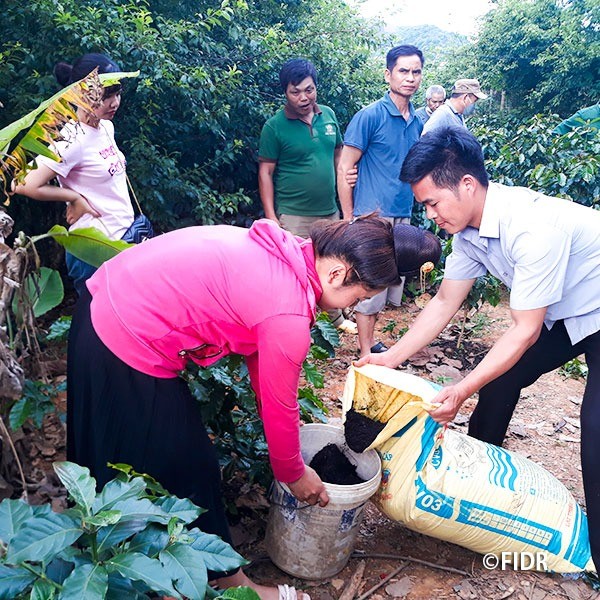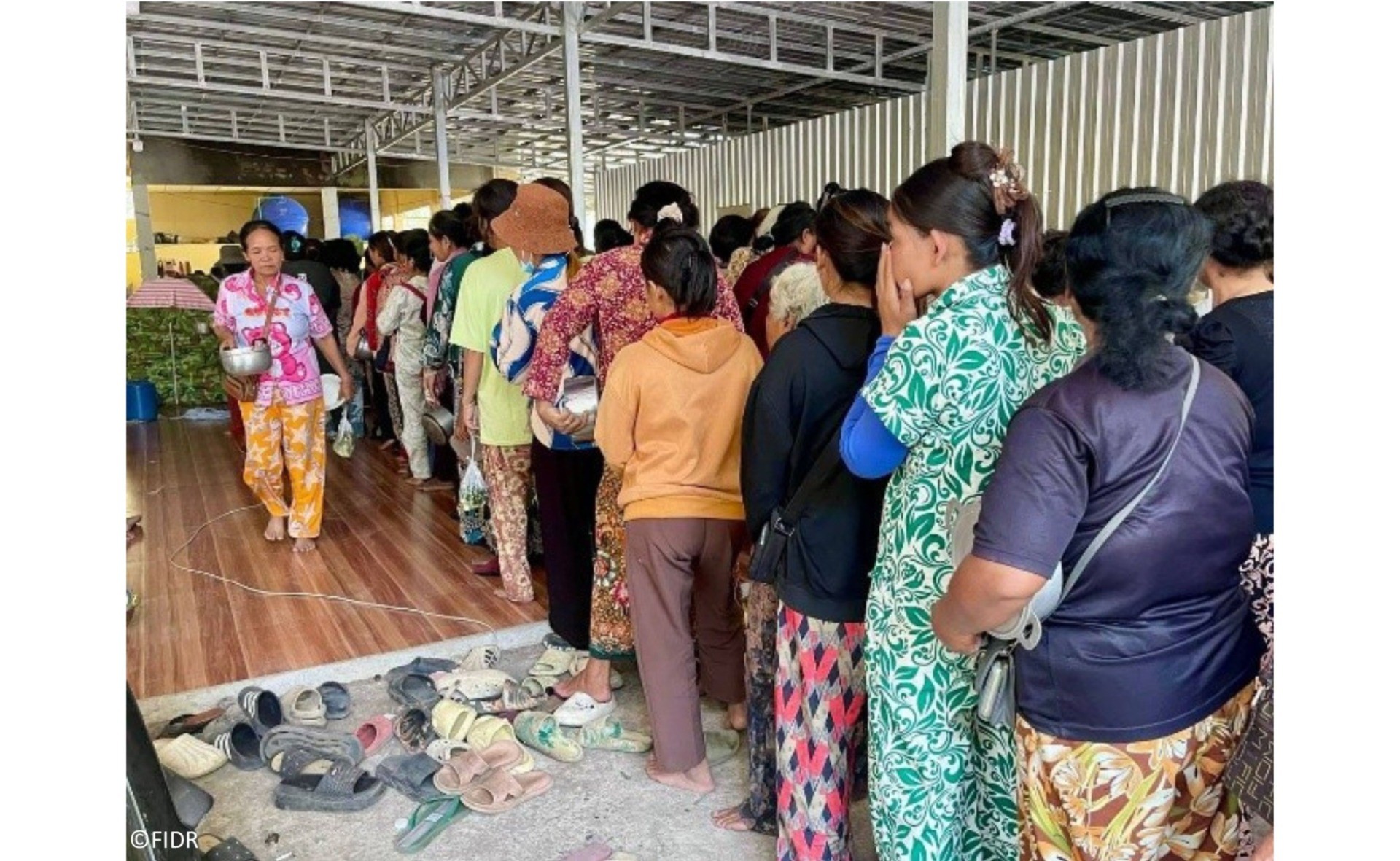Reducing costs by using eco-friendly compost

In preparation for the next season, coffee farmers start maintenance-related work on their farms, such as taking care of trees, after they finish harvesting coffee beans once a year (usually between October and December). Our project is aimed at conducting various kinds of training on agricultural technology, adjusted to the coffee cultivation period. One primary goal is to teach how to use compost in coffee farming.
Coffee farmers in this region are often concerned about the high cost of fertilizers and pesticides needed for their farms. This, among other factors, also makes everyday life difficult for them. However, composting is easy and environmentally friendly, and it can be done using organic household waste, incurring no large cost for the farmers. Composting makes use not only of raw garbage and livestock excrement, but also of coffee cherry husks that are usually disposed of during the cultivation process. Compost can be made out of those husks when they are mixed with soil and left to ferment for a while.
During the agricultural training conducted by FIDR and its partner, Tay Bac University, farmers learned how to make soil using compost. They could also try the new method on their farms.
When the training started, some of the farmers expressed disinterest in trying at all. They believed making compost would be time-consuming and expensive. However, after the training, their opinions changed.
”Composting is a great way to recycle raw garbage and livestock waste. We have some neighbors who don't even know about this yet. The coffee cherry husks are thrown away after the harvest, so it's quite a waste. I want to share this composting method with others,” one of them said.
”I want to use compost for growing coffee trees and nurturing my home garden,” another one commented.
“I heard that compost made from coffee cherry husks is rich in nutrients and can be a good fertilizer, so I am planning to use it not only for coffee farming but also for other fruit fields,” was another comment we received.
Many farmers started making compost immediately after the training finished.
Other Activity Reports
-
Emergency Relief for Displaced People in Cambodia

2026.01.30
Needs Assessment for Emergency...
Cambodia Emergency Response and Rehabilitation Assistance -
Kampong-Leng Livelihood Improvement Project

2025.12.12
The Community's Initial Effort...
Cambodia Nutrition Agriculture International Cooperation for Social Development
DONATION
Your generous donation now will have impacts
on children and communities in our fields.














